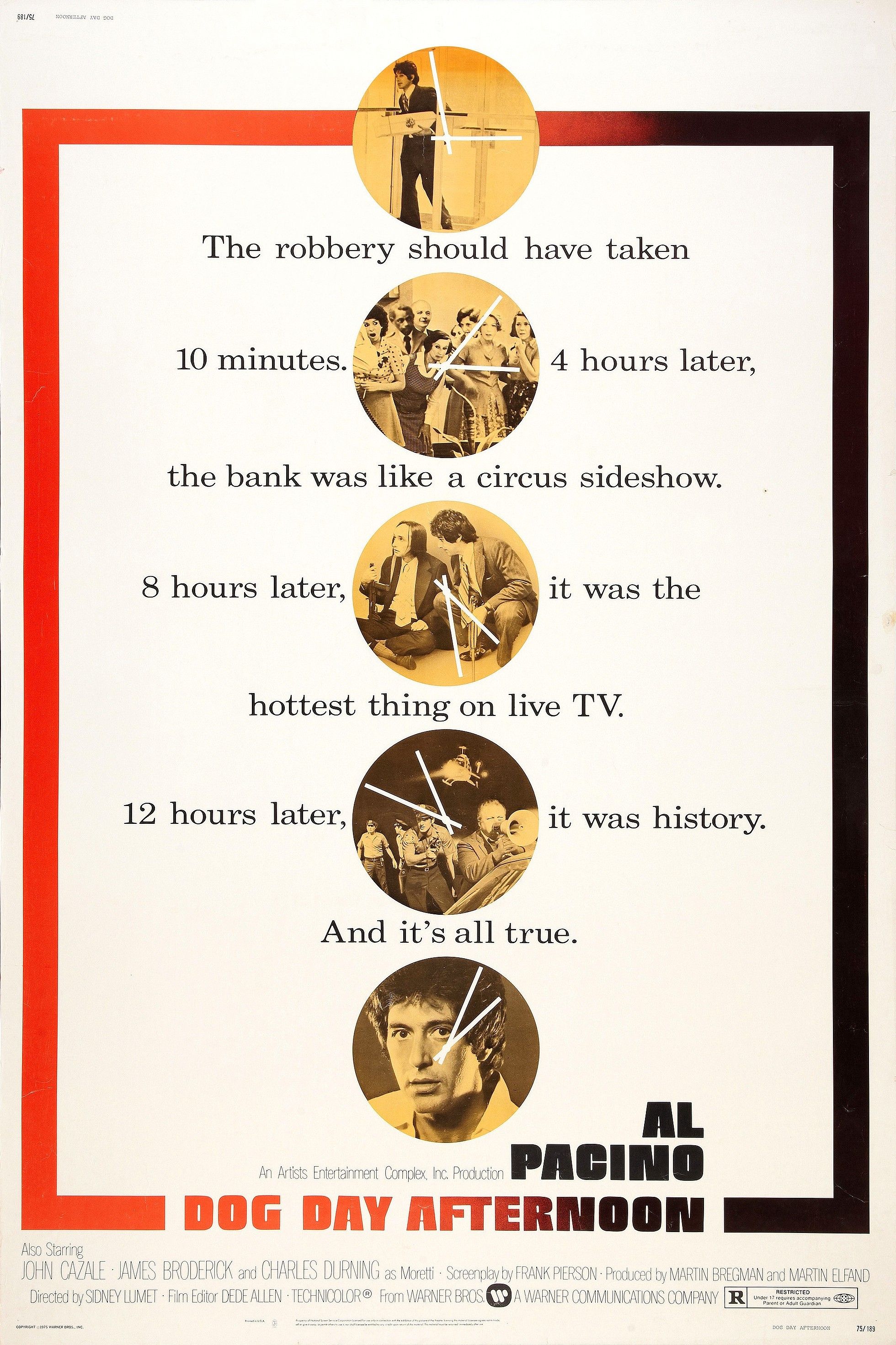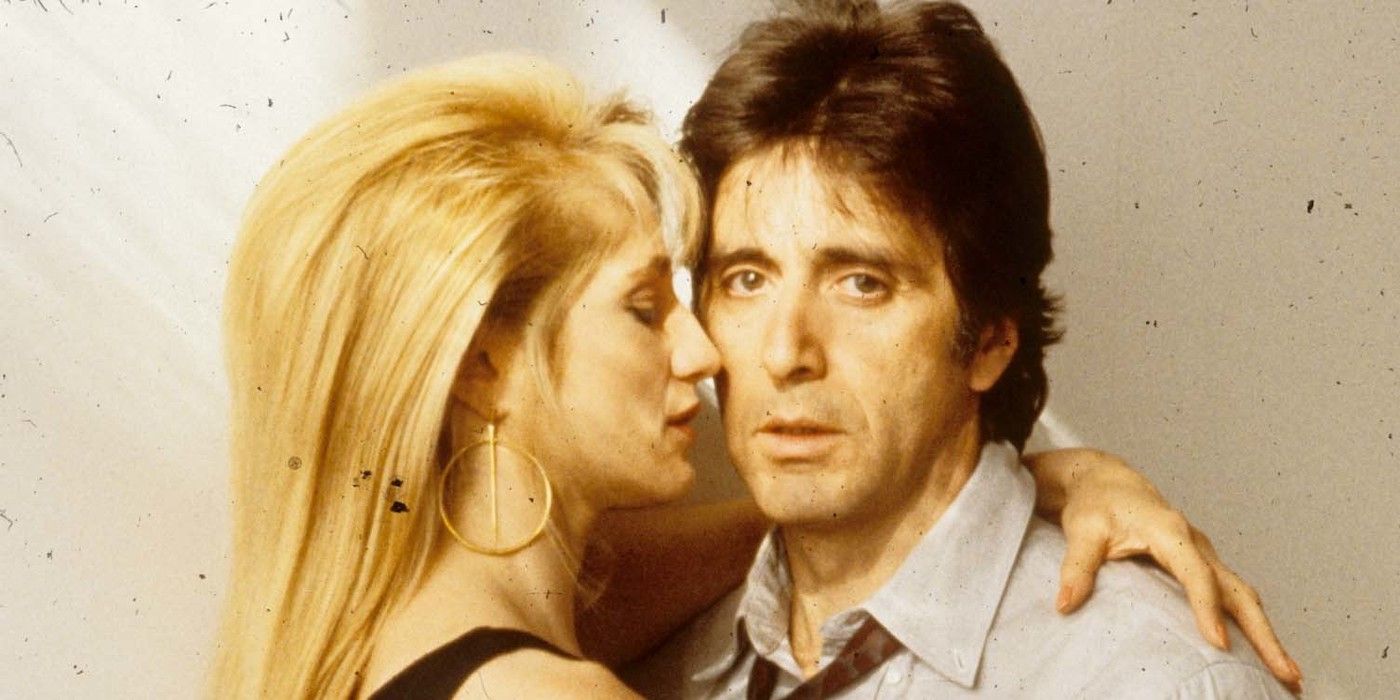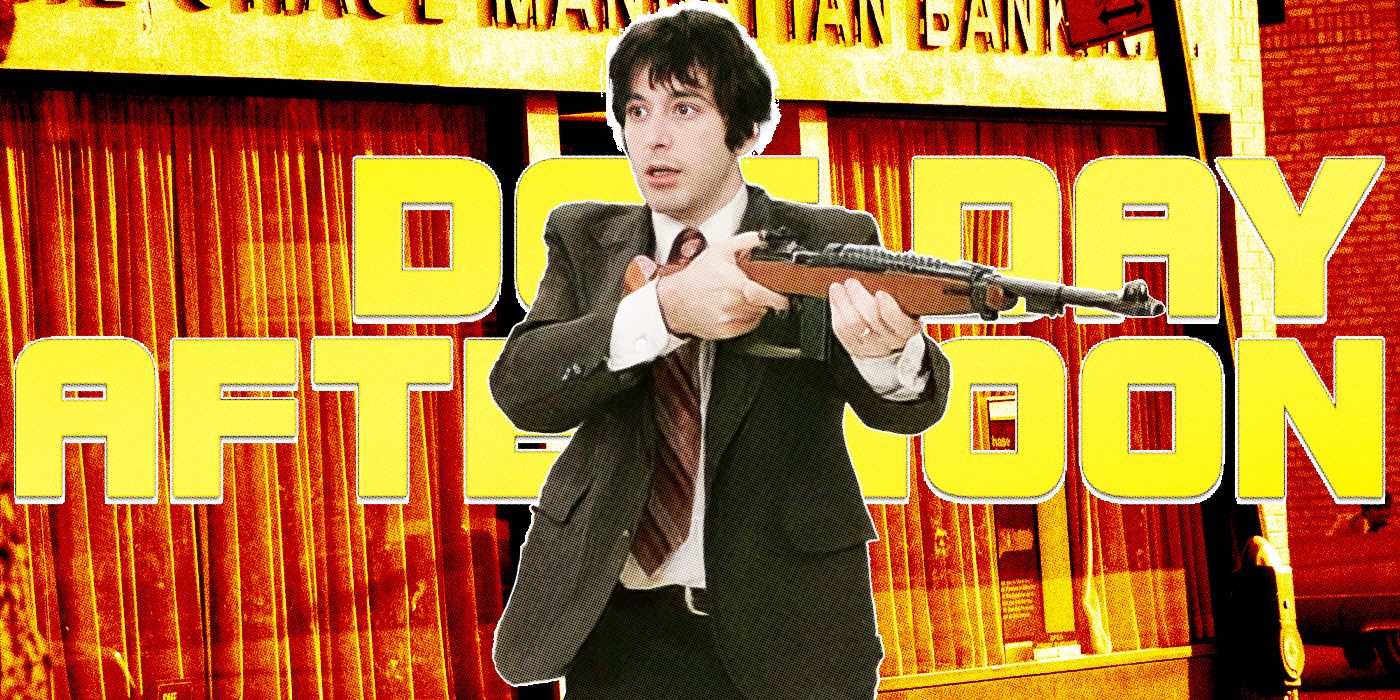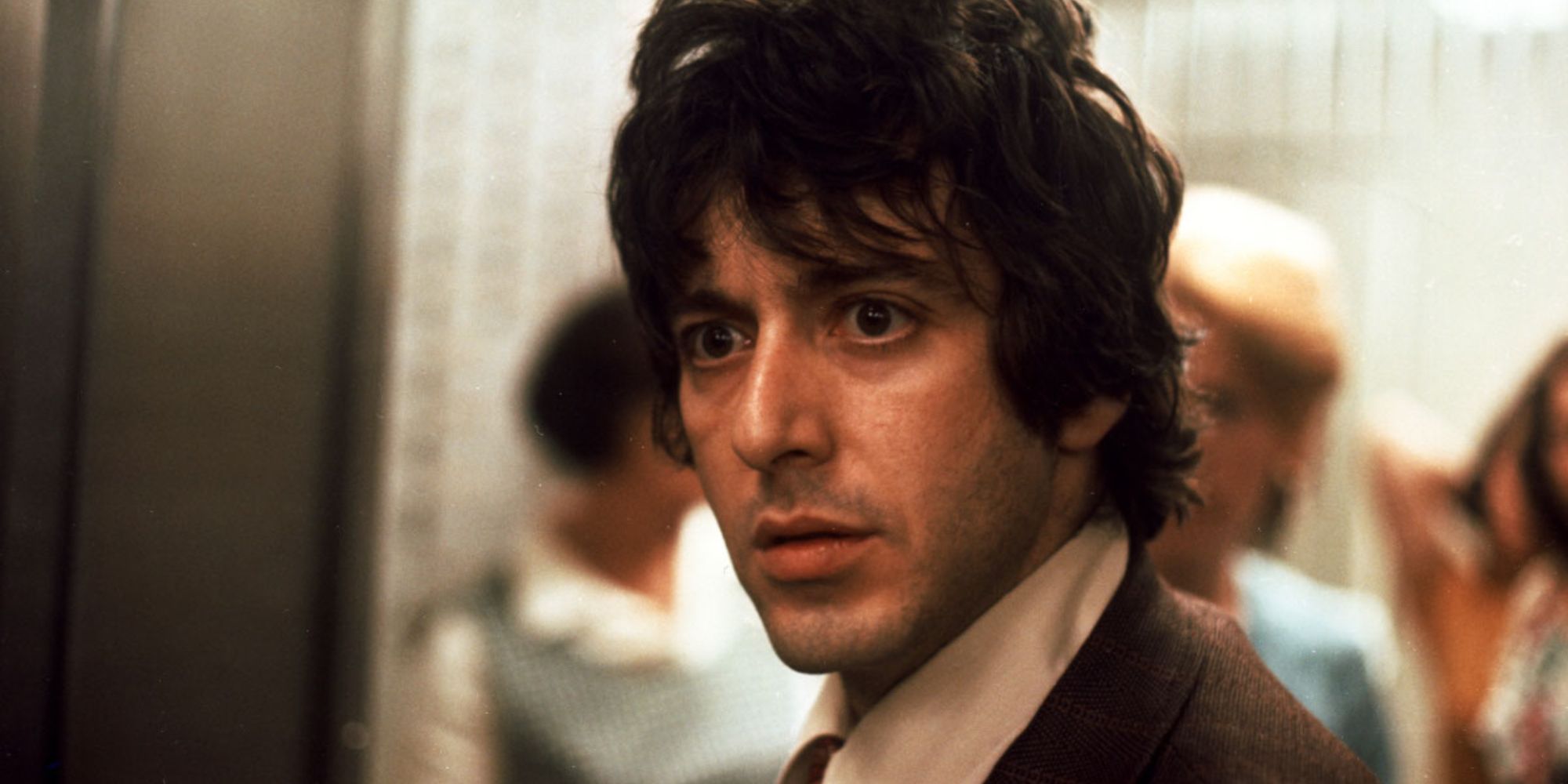The Big Picture
- Dog Day Afternoon is a darkly comedic crime film inspired by a real-life bank robbery gone wrong in 1972.
- The film tells the story of John Wojtowicz, one of the bank robbers, and his motivations, including his desire to steal money for his spouse's sex-reassignment surgery.
- Despite its initial success and critical acclaim, John Wojtowicz's fame and notoriety faded over time, and he spent his remaining years living a relatively obscure life before passing away in 2006.
Director Sideny Lumet's Dog Day Afternoon is a seminal American crime film. In telling the true story of two hapless men whose attempted bank robbery went awry, Lumet and screenwriter Frank Pierson crafted a darkly comedic and strangely touching tale. Al Pacino, in perhaps one of the greatest performances of his legendary career, portrays Sonny, a down-on-his-luck New Yorker who hopes to steal enough money so that his spouse can undergo sex-reassignment surgery.
Decades after the film went on to great critical and commercial success, the story of John Wojtowicz, who led the assault on the New York bank, would be revisited in the 2013 documentary, The Dog. In that film, Wojtowicz sits front and center with an undeniable sense of scrappy showmanship. A vulgar, morally questionable, yet magnetically larger-than-life man who pulls no punches and leaves little to be desired, he recounts his exploits before, during, and after the robbery. Fluent in hyperbole, habitually hamming it up for cameras, and spinning extravagant yarns, Wojtowicz paints a self-portrait that makes it not so difficult for one to understand him as a man who thrived on impulse and desire. The end result sees a certain level of empathetic context lent to the motivations behind his actions, giving viewers a disturbing but poignant glimpse into an individual whose day in the sun has largely been lost to history.

Dog Day Afternoon
Three amateur bank robbers plan to hold up a bank. A nice simple robbery: Walk in, take the money, and run. Unfortunately, the supposedly uncomplicated heist suddenly becomes a bizarre nightmare as everything that could go wrong does.
- Release Date
- December 25, 1975
- Director
- Sidney Lumet
- Cast
- Al Pacino , John Cazale , Penelope Allen , Carol Kane
- Runtime
- 125 minutes
- Main Genre
- Drama
- Writers
- Frank Pierson , P.F. Kluge , Thomas Moore
What Inspired 'Dog Day Afternoon'?
Dog Day Afternoon was inspired by a real crime. New York. August 22, 1972. As the oppressive heat of the day blazed on, three men entered a Chase Manhattan Bank in Brooklyn. John Wojtowicz, Salvatore Naturale, and Bobby Westenberg, brandishing shotguns, slipped a teller a note that read, "this is an offer you can't refuse" (the trio had just watched The Godfather for some criminal inspiration). Within seconds, the plans for their robbery began to crumble. Westenberg suffered a crisis of conscience and abruptly fled the bank. Upon gaining access to the vault, Wojtowicz and Naturale were dismayed to discover that it was half empty. Of the eight employees who were being held up, one managed to sound an alarm. Police, investigators, journalists, and a slew of curious bystanders quickly arrived on the scene, and so began an hours-long hostage crisis that took the nation by storm.
In a quintessential example of the media's habit of sensationalizing crime, this botched robbery and hostage negotiation captivated the public. New Yorkers and Americans from all over tuned in to watch the drama unfold throughout the day and night, which was heightened by Wojtowicz seizing his moment in the spotlight. Knowing that he was in control of the situation, even if temporarily, he put on a show for people watching by frequently spatting with authorities and exercising as much leverage as he could. He embraced his underdog status, quickly becoming a symbol of the little man taking on the big systems of banking and law enforcement.

Al Pacino's Most Underrated Movie Came When He Needed It Most
The film came at a time that wasn't too fruitful for the icon.At the same time, the unusual nature behind his motivation to rob the bank and the tumultuous relationship he had with his spouse were aired like dirty laundry for all to see. His spouse, Elizabeth Eden, who was being cared for at a local hospital after attempting suicide, was brought to the scene of the crime for the sake of deescalation. Wojtowicz's mother also made an appearance and pleaded with her son to put an end to the situation. After arranging for the two robbers to be taken to an airport under the guise that they would be flown out of the country, Naturale was shot and killed by authorities and Wojtowicz immediately surrendered. All hostages survived, and the lone bank robber was sentenced to 20 years in prison, ultimately being released after five years.
Who Was Al Pacino's John Wojtowicz?
A self-proclaimed pervert who delighted in all things sexual, John Wojtowicz was born in New York City in 1945. Described by his mother (who's featured prominently in The Dog) as a good kid growing up, Wojtowicz joined the military (where he had his first sexual experience with a man) and served in the Vietnam War, but not before marrying Carmen Bifulco in 1967. Bifulco's family, particularly her father, despised her fiancée and the marriage was forbidden, with Wojtowicz even speculating that they hoped he wouldn't return from the battlefields of Vietnam.
As a relatively well-known man within New York City's gay community, his marriage ultimately deteriorated, but he found some solace in associating with the now defunct Gay Activist Alliance in the late '60s. In 1971, the future bank robber met and married Elizabeth Eden, a transgender woman who wished to undergo sex-reassignment surgery. Their relationship was characterized by a volatility that oscillated between passionate love and bitter confrontation. While he initially didn't support Eden's desire for a surgical operation, Wojtowicz eventually came around to the idea and hatched his plan to secure funds through bank robbery.
Al Pacino Wasn't Sure About 'Dog Day Afternoon'
Just a couple of years after John, who would later dub himself "The Dog," attempted to rob the Chase Manhattan bank in Brooklyn, Warner Bros. and Hollywood came knocking on his cell door. His story caught the attention of producer Martin Bregman and director Sidney Lumet. They hired Frank Pierson to pen the screenplay, which ultimately found its way to Al Pacino, who was initially hesitant about taking on such an intense role after having recently finished the demanding production of The Godfather: Part II.
Dog Day Afternoon was released on September 21, 1975, grossing roughly $50 million at the box office. It would go on to receive six Academy Award nominations including Best Picture, Best Actor, and Best Director, with Pierson taking home the film's sole award for his original screenplay. Pacino's performance as Wojtowicz was widely praised and considered one of the film's highlights. Many critics made mention of the level of relatable humanity he brought to a character who, on the surface, could easily be written off as an unlikable crook, but upon closer examination, was vulnerable and all-too-human. He lends Sonny and the overall world of the film a sense of believability, inviting viewers to empathize with a desperate man for whom the external forces surrounding the situation he's created keep closing in.
What Happened to Al Pacino's 'Dog Day Afternoon' Character in Real Life?
Initially, "The Dog" was told he'd not be able to see Dog Day Afternoon while in prison, but was able to secure a personal screening after threatening the warden with starting "the biggest riot you ever saw." While he claimed that the film moved him, he did take issue with some of the finer details surrounding his story. He objected to what he perceived as an implication that he gave his partner up to the authorities in order to save his own neck, as well as his ex-wife being portrayed in what he considered to be an unfavorable light.
After being released from prison in 1978, Wojtowicz's reintegration into society was largely uneventful. While his day on the national stage led to an influx of fame and notoriety that he seemed to relish in, he mostly dwindled in the public consciousness as time went on. In a moment of surreal irony, perhaps his most noteworthy public appearance since being released from prison was when he tried to get work as a security officer at the very bank he attempted to rob.
With the money Wojtowicz made selling the rights of his story to Warner Bros., Elizabeth Eden was able to undergo her sex-reassignment surgery, though she eventually left John and passed away due to complications from AIDS in 1987. The convicted felon would spend his remaining years living with his mother in New York, occasionally basking in his relatively obscure fame by engaging with fellow New Yorkers, signing autographs, and posing for pictures. While his story and criminal exploits are just a mere footnote in the grand history of America's largest city, his legacy continues to live on through Sidney Lumet's film as well as Allison Berg and Frank Keraudren's 2013 documentary. On January 2, 2006, John Wojtowicz died of cancer. He was 60.
Dog Day Afternoon is available to rent on Prime Video.


